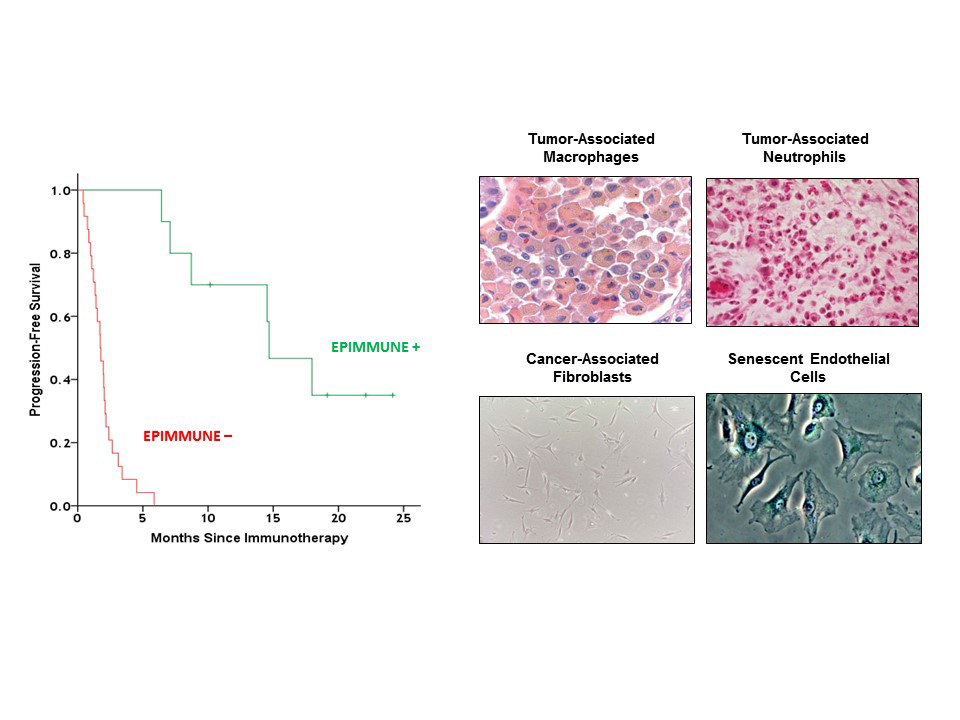A research led by Manel Esteller discovered how an epigenomic profile predicted the clinical response to immunotherapy in lung cancer. The article, published in the journal The Lancet Respiratory Medicine, showed how a particular DNA methylation signature was associated with sensitivity to anti-PD-1 immune checkpoint inhibitors. Non-small cell lung cancer (NSCLC) is the leading cause of cancer-related death worldwide. Although immunotherapies have extended the lives of many patients with advanced disease, a substantial percentage of cancers don’t respond to this treatment strategy. Now, a new study shows that a DNA methylation profile is associated with improved progression-free and overall survival in patients with stage IV NSCLC who received antibodies that block programmed death-1 (PD-1).
Esteller’s group first established an epigenomic profile based on a microarray DNA methylation signature (EPIMMUNE) in tumor samples from patients treated with different PD-1–targeted antibodies. Next, the EPIMMUNE signature was validated in an independent set of patients. Then, we identified the best single DNA methylation marker that could predict response to PD-1 blockade therapy in patients with NSCLC. The top gene candidate was the T cell-related forkhead box P1 (FOXP1) transcription factor, which the investigators validated by a single-methylation assay in another cohort of patients. It was interesting to see that those EPIMMUNE-positive patients, the responders, presented with a high number of activated T and B lymphocytes, whereas the EPIMMUNE-negative patients, the nonresponders, showed in their tumors more cells of the myeloid lineage, macrophages and neutrophils, more fibrosis and immature blood vessels. The described research also represents a starting point for other studies, such as investigations into whether the DNA methylation markers examined by his team could be new targets for epigenetic drugs, or if the the identified epigenomic signature can be applied to other tumor types where immunotherapy treatments are starting to be used.
References
